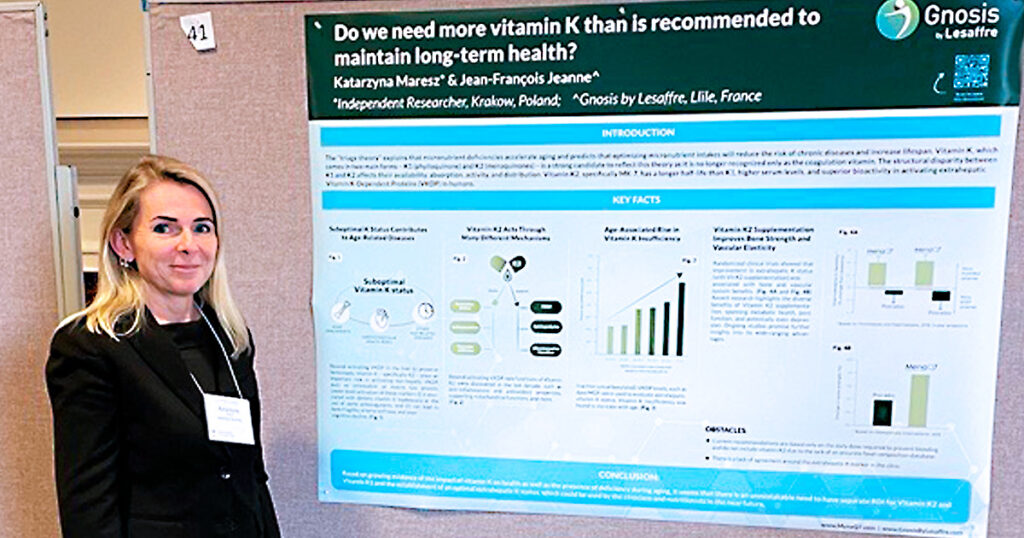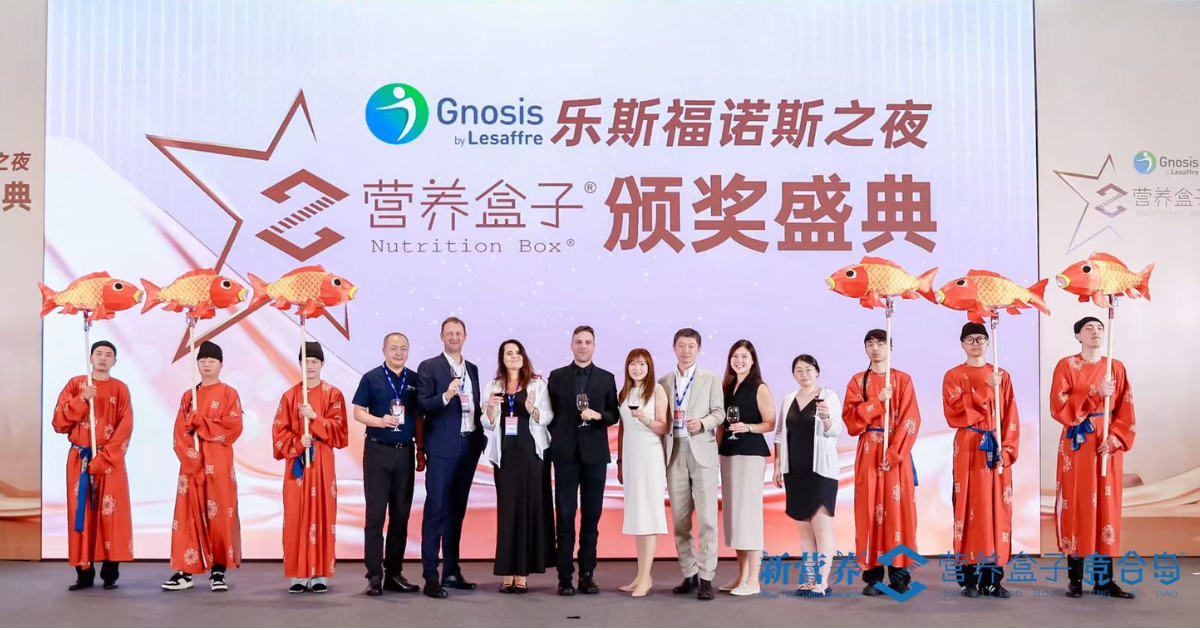
The biennial Linus Pauling Institute Conference is renowned for highlighting health span research and nutritional advancements. This year, the term Precision Health took center stage. The topic of how we can live longer, and better lives is not new, but strategies to support this goal are becoming more and better researched. Amid the discussions on the conference floor was the role of vitamin K2 as MK-7 in supporting foundational health as we age.
Gnosis by Lesaffre proudly sponsored the event and brought its vitamin K2 expertise to the forefront with a poster presentation titled “Do we need more vitamin K than is recommended to maintain long-term health?” This collaborative effort between Gnosis expert Jean Francois Jeanne and independent K2 researcher Katarzyna Maresz, sparked insightful conversations. The poster urged a closer examination of the recommended daily dose of vitamin K, proposing that a higher Recommended Daily Intake (RDI) may be necessary for long-term health. The poster highlighted the “triage theory” that suggests that micronutrient deficiencies can hasten aging and heighten the risk of chronic diseases.
The Impact of Vitamin K2 Deficiency is Concerning
Vitamin K is traditionally known as the coagulation vitamin, however, beyond liver-related functions, vitamin K2, specifically, plays a significant role in activating non-hepatic VKDP (Vitamin K Dependent Proteins), including osteocalcin and matrix Gla protein.
Inadequate activation of these VKDPs due to vitamin K deficiency has been associated with various health issues, including fragile bones, arterial stiffness, and even cognitive decline. This deficiency tends to increase with age, affecting critical aspects of healthy aging, such as bone and cardiovascular health. Fortunately, addressing these concerns can be straightforward, with studies showing that supplementing with MenaQ7 Vitamin K2 improves bone strength and arterial flexibility.
Bridging the Gap: Reassessing Dietary Recommendations
One key aspect from the poster presentation is that current dietary recommendations in Western countries primarily aim to prevent bleeding and do not consider vitamin K2. This oversight stems from the lack of an accurate food composition database for vitamin K2. Further, Vitamin K2, specifically MK-7, has a longer half-life than K1, higher serum levels, and superior bioactivity in activating extrahepatic Vitamin K-Dependent Proteins (VKDP) in humans, and is therefore the most optimal form of vitamin K to support health.
Katarzyna Maresz, renowned expert in vitamin K2, highlighted the conference’s importance in shedding light on the need to reevaluate daily vitamin K recommendations for long-term health. She stated, ‘The LPI Conference is an ideal place to illuminate the need to re-consider the daily recommendations of vitamin K for long term health, to an audience of key thought leaders in this field.'”
A Better future with Vitamin K2
The poster presentation illuminated the critical role of vitamin K2 in maintaining long-term health. As the realm of nutritional science continues to evolve, reevaluating dietary recommendations becomes essential in promoting better and longer lives for all.
Latest news & videos

- News
- Quatrefolic®
- Wellness & Immune
- Jun 12, 2025
Webinar Rethinking Women’s Health 24 June 2025
Women's health is complex, constantly evolving, and a broader perspective is long overdue, one...

- News
- Quatrefolic®
- Wellness & Immune
- Jun 09, 2025
Gnosis by Lesaffre Highlights Quatrefolic® at New Nutrition Forum in Hangzhou, China
Gnosis by Lesaffre was proud to serve as the Title Sponsor of the New...

- Corporate
- Digestion & Gut
- News
- Jun 06, 2025
Biotic Live: A Successful First Edition Exploring the Power of Probiotic Yeasts
Gnosis by Lesaffre recently hosted the first edition of Biotic Live, a unique event...


